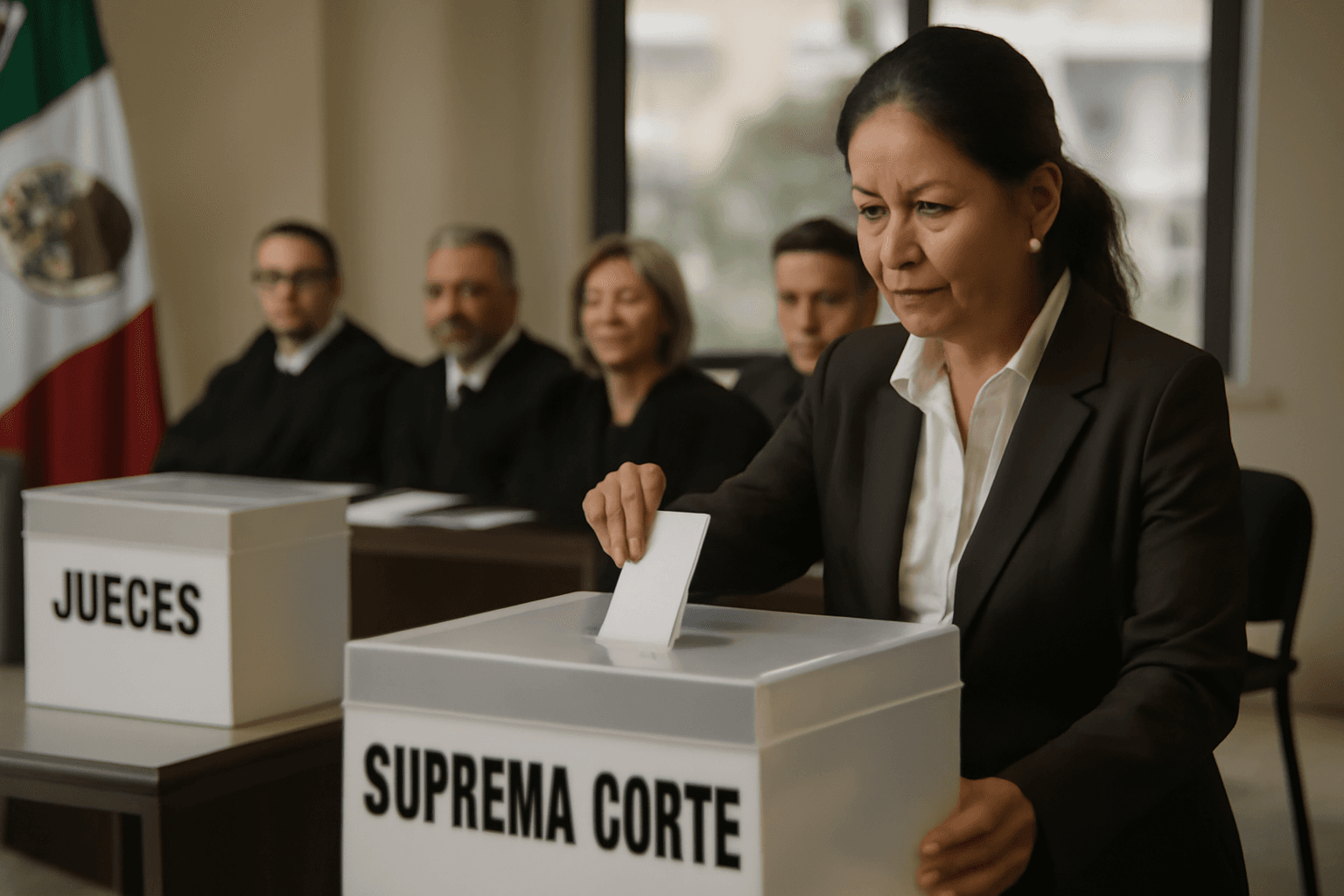On Sunday, Mexico undertakes an unprecedented judicial election, allowing citizens to directly elect nearly 2,600 judges and magistrates, including members of the Supreme Court and various federal, state, and municipal courts. This marks a significant shift from an appointment system to a popular vote, aiming to enhance democracy and reduce corruption within the judiciary.
The reform, driven by President Andrés Manuel López Obrador and his successor Claudia Sheinbaum, was initiated after clashes between the executive and judicial branches, notably when courts blocked several government initiatives. These institutional tensions motivated Morena, the ruling party, to amend the Constitution last year to enable the election of judges by popular vote.
Nearly 880 federal judicial positions and approximately 1,800 local judgeships in 19 states are open for election this cycle, with the remainder scheduled for 2027. Over 7,700 candidates are contesting these posts without the typical political party support, as campaign financing from public or private sources is prohibited. To assist voters, the electoral commission launched an online portal providing candidate information, though many acknowledge the challenge voters face in making informed choices amid many unknown contenders.
The reform has sparked significant criticism and protests from legal professionals, political opposition, and international observers. Concerns include the risk of politicizing the judiciary, undermining judicial independence, and potentially enabling candidates with cartel affiliations to gain positions of power. The electoral authority has reported investigations into possible voter coercion through physical guides distributed in some regions.
Supporters argue that this new system could dismantle entrenched corruption and nepotism, shifting judicial accountability directly to citizens rather than political elites or criminal influences. Conversely, critics warn the overhaul may open doors to unqualified judges and expand organized crime’s influence within the justice system.
Notably controversial candidates include Silvia Delgado García, a former defense attorney for drug lord Joaquín “El Chapo” Guzmán, who is running for a criminal judge position in Chihuahua state. While she insists on impartiality, her candidacy fuels debate over the election’s effectiveness in restoring judicial integrity.
Due to paper ballots requiring manual counting, final results will be announced days after the vote, with the official national count scheduled for June 15. This judicial election, one of the most ambitious undertaken by any large democracy, will fundamentally reshape Mexico’s legal landscape, though its long-term impact remains uncertain.

